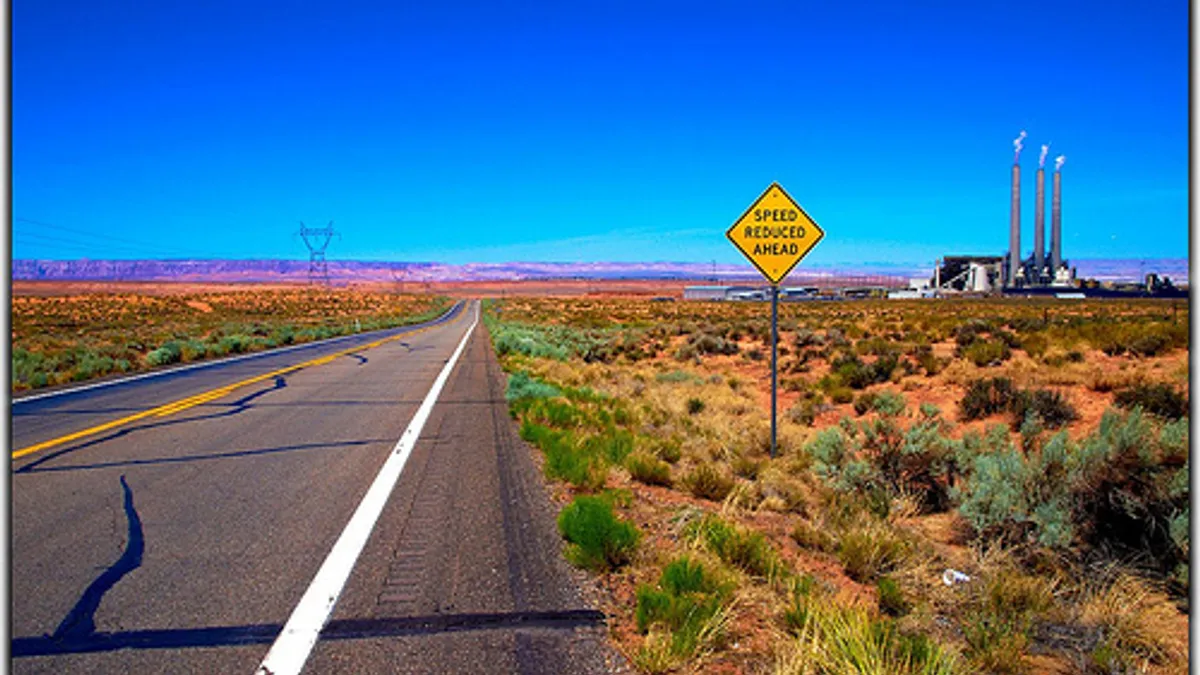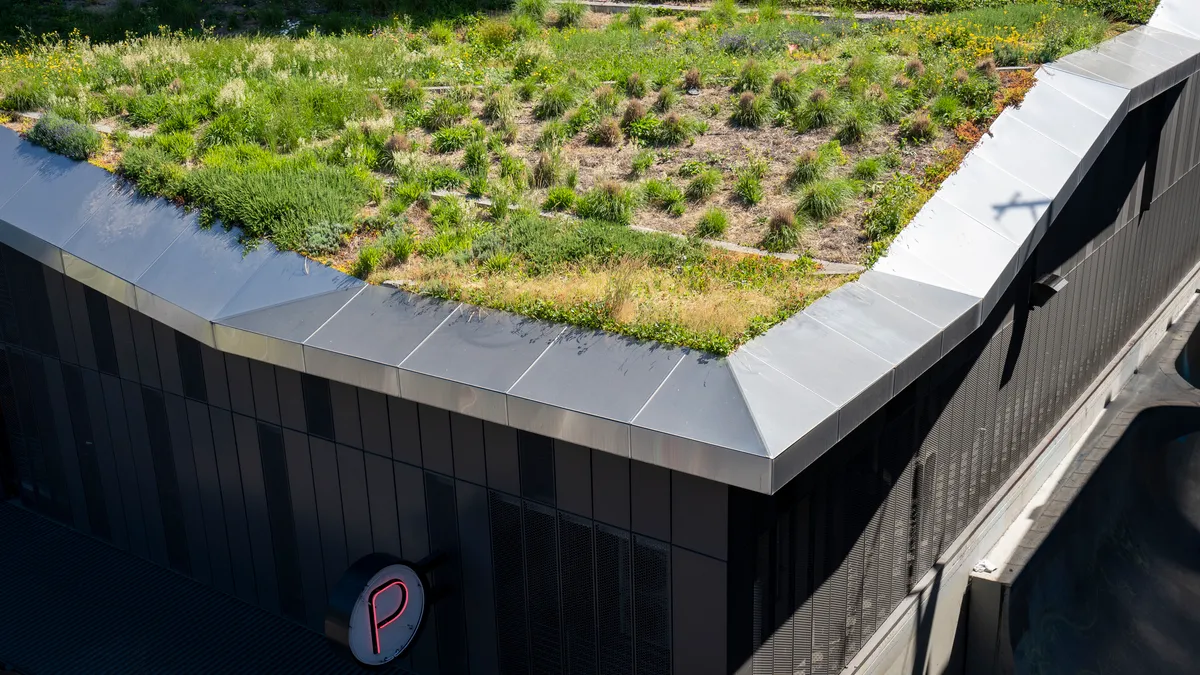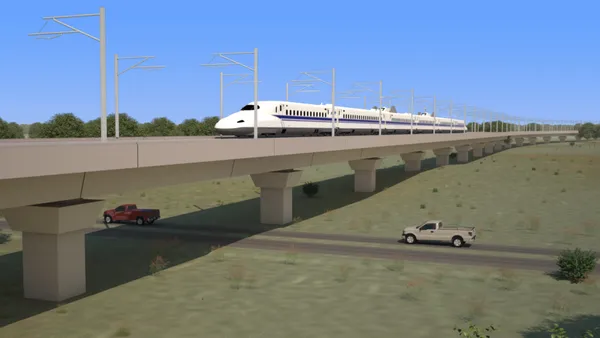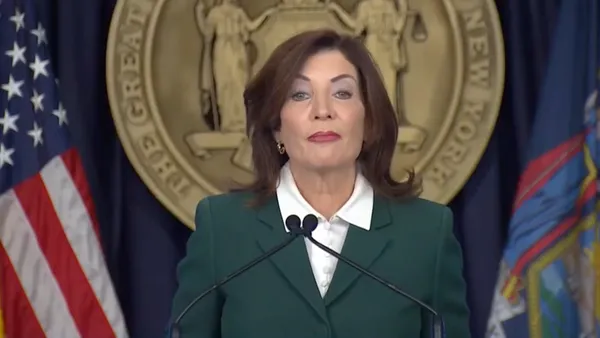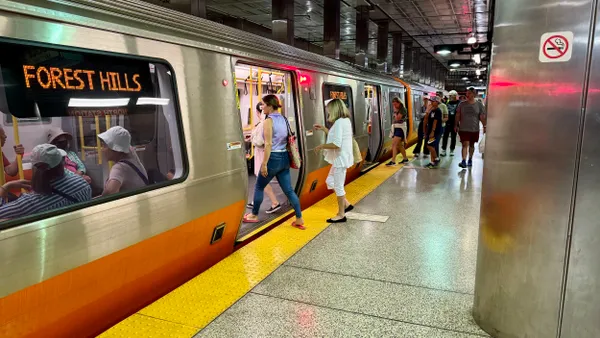Dive Brief:
- Arizona Gov. Doug Ducey, R, has signed an executive order giving the go-ahead for autonomous vehicles (AVs) to operate on the state's roads without a human present.
- The autonomous vehicles must still comply with all state traffic and safety laws. They will also have to meet all certificate, title registration, licensing and insurance requirements.
- The executive order also instructed the Department of Public Safety to collaborate with other agencies on developing protocols for how first responders will handle AVs, both for traffic enforcement and in emergencies.
Dive Insight:
“As technology advances, our policies and priorities must adapt to remain competitive in today’s economy,” Ducey said in a statement. Competitive indeed, considering his announcement came just days after the California DMV made the same move to allow driverless vehicles without a human safety driver.
Truth be told, the two states have had a fairly well-known competition to be the first to adopt AV innovations and to attract driverless vehicle companies. Each state offers attractive benefits. A number of the AV operators who are already testing in Phoenix — such as Waymo, Intel and Uber — actually have their home bases in the San Francisco area, which is well known for its business friendliness toward innovators. But California has a lot more restrictions on AV testing and Arizona prides itself on staying out of the companies' way. Both states have well-maintained road infrastructure compared with many other states, and temperate weather that won't interfere with test runs like snow, rain or high winds would.
Companies have been testing standard AVs in California and Arizona for a while, but now there's an added push to test other AV-related innovations. Last month, Waymo received a permit to operate a Transportation Network Company in Arizona, or in other words, an autonomous taxi or ride-sharing service. Last week, Uber announced a pilot for self-driving cargo trucks in Arizona.
Ducey's new executive order is an update of the one he signed in 2015, which first allowed AV testing on Arizona's roads. He saw the opportunity as one that could give his state an economic advantage and create job growth. The new update allowing pilot programs without human drivers ensures that Arizona stays at the forefront of the AV competition.



